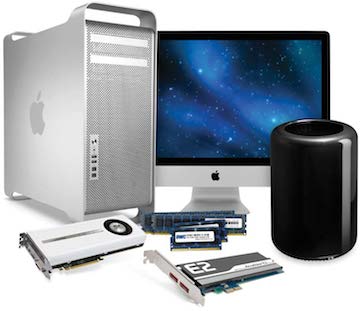And last, if you tell us the name of the game I, for one, am will to help research it to see if any red flags show up. My 2010 iMac 2.93gHz quad-core i7 with 12GB RAM, an ATI Radeon 5750 chipset and 1TB VRAM runs games quite well, including the flight sim X-Plane which will grab every resource possible.
If you use your Windows PC to play games, you know that it can be a constant, and expensive battle, trying to keep up with the ever increasing demands new games put on your hardware. It can seem that the only solution is to spend money on a new graphics card, more RAM, a bigger hard drive, or even a new PC. However, there is a lot you can do before you get to that stage to improve your computer’s gaming performance without buying hardware.
Here are some ways to speed up a gaming PC and save yourself some money.
Update graphics card drivers
This is probably the simplest way to improve gaming performance on Windows 10 and the one that’s likely to have the biggest effect. You should update drivers directly from your graphics card manufacturer’s website, rather than relying on Windows to tell you when there’s an update available. Go to the website, like amd.com or geforce.com and locate the driver updates section. Find your video card model and download the latest update. Follow the instructions to install it. You should definitely check for updates whenever you buy a new game, as new games will benefit most from the updates and fixes in the latest drivers.
Tweak graphics card settings
Both Nvidia and AMD cards have control panels for their drivers that allow you to make changes to the settings. So, for example, if you want to improve performance in 3D games, look for the panel in the controls that deals with 3D games. It’s worth noting that tweaking the settings in GPU drivers is a trade-off: boosting frame rate will probably reduce image quality. It’s worth experimenting and discovering which settings work best for you.
Speed Up Games On Mac Windows 10
Free up CPU and memory
Other than the graphics card, CPU and memory resources are the two factors that will have the biggest effect on gaming performance on your PC. So making as many of those resources available for the game you’re playing as possible is key. Of all the things you can do to free up resources, preventing programs launching automatically at startup is going to do the most to help performance. Some of these applications, like antivirus tools, are important and should be left to run. Others, however, including programs like Spotify and Steam don’t need to launch automatically every time you boot your PC and can be safely disabled.
The easiest way to remove startup applications is to use CleanMyPC. It allows you to see and quickly remove startup items, as well as perform several other tasks that will make your PC run more smoothly.
1. Download CleanMyPC and launch it on your computer
2. Choose the Autorun tool in the left hand sidebar. You’ll see a list of startup items. Those that are enabled had their switch set to the on position.
3. Choose which items to disable and set the switch to off. You can switch it back on again at any time.
To remove an autorun application permanently, so that it can never startup automatically again, check the box next to it and choose Remove at the bottom of the window.
As you can see, with CleanMyPC you can manage your startup programs faster and easier than doing it manually.

Adjust in-game settings
This is another one that will have a dramatic effect on performance and speed up PC games. 3D and graphics intensive games usually have a section where you can adjust settings to improve performance. For example, you can usually set the DirectX version, change the resolution, and set the quality of features like textures, shadows, and reflections. If you find your PC is struggling to run a game smoothly, reducing the quality of textures, shadows, and reflections will free up graphics processing power to be used to improve the frame rate.

Prevent your PC from overheating
Most PC’s, when they overheat deliberately cut the power to the CPU and GPU, causing both to run more slowly, but avoiding damaging them. The easiest way to stop your PC overheating is to keep it clean and free from dust. Dust particles clog vents and stop fans from working more effectively, meaning your PC is more likely to overheat. Get into the habit of checking for and removing dust regularly.
Change power settings
If you’re using a laptop, it’s likely that its power settings have been configured to preserve battery life, rather than maximize performance. To optimize your PC for playing games, you should change that In Windows 10, go to Settings then System Power and Sleep and select Addition Power Settings. Change it to High Performance
There are a number of things you can do to boost your gaming PC without resorting to spending lots of money on hardware. From updating graphics card drivers and tweaking their settings to disabling autorun applications, each one will have an effect on the performance of the games you play. Together, the tips above should make a noticeable difference and make playing games on your PC much more fun.